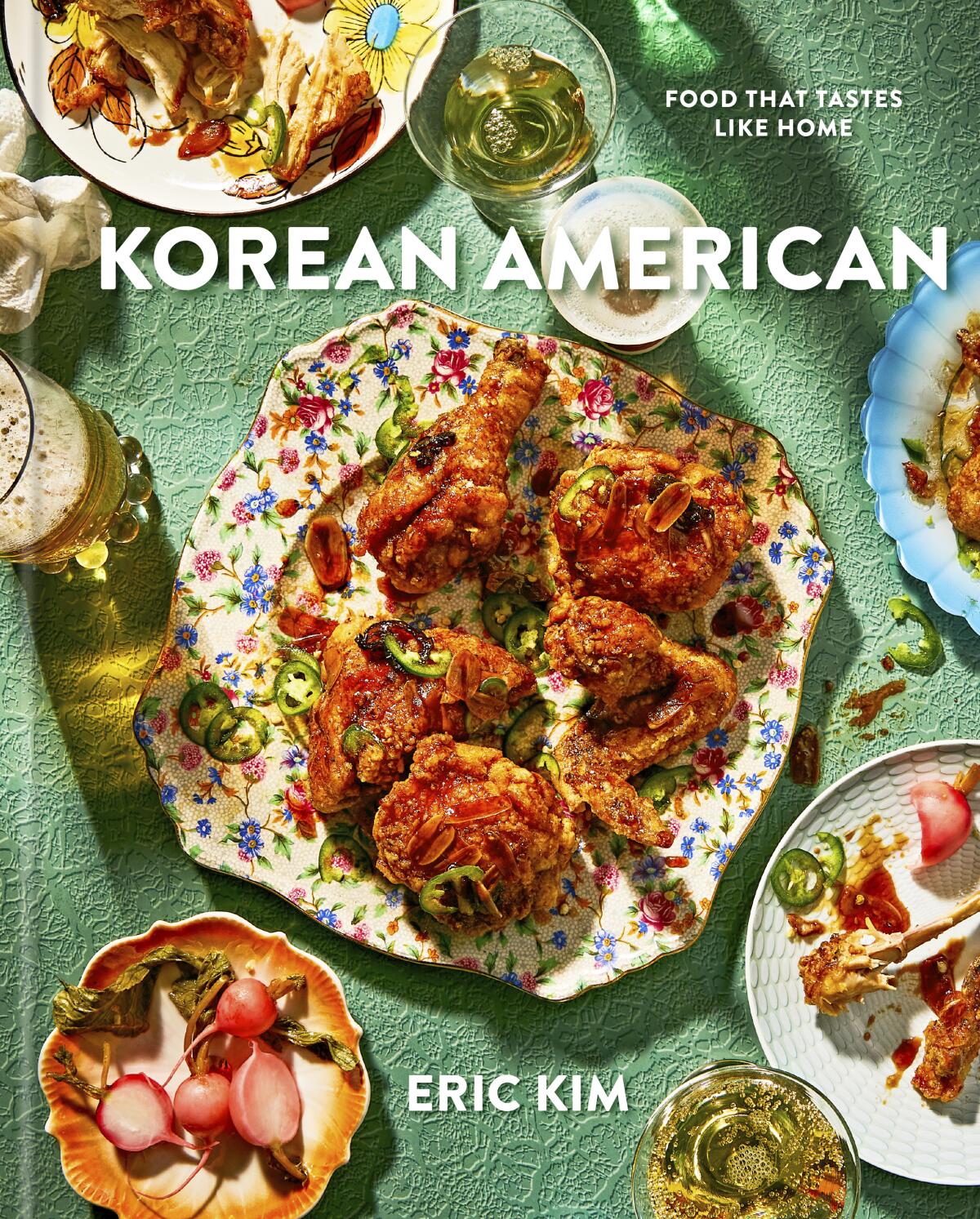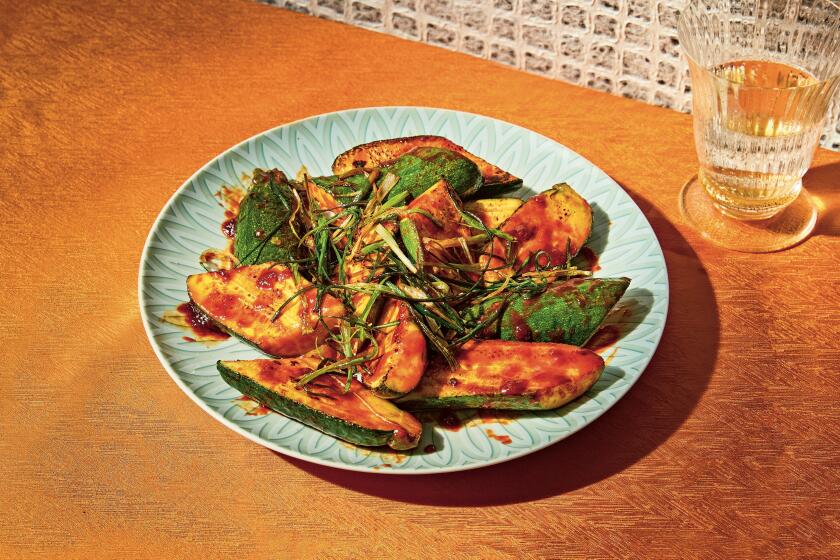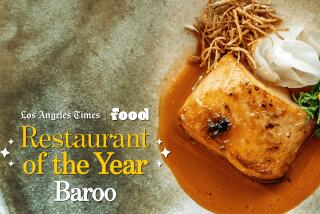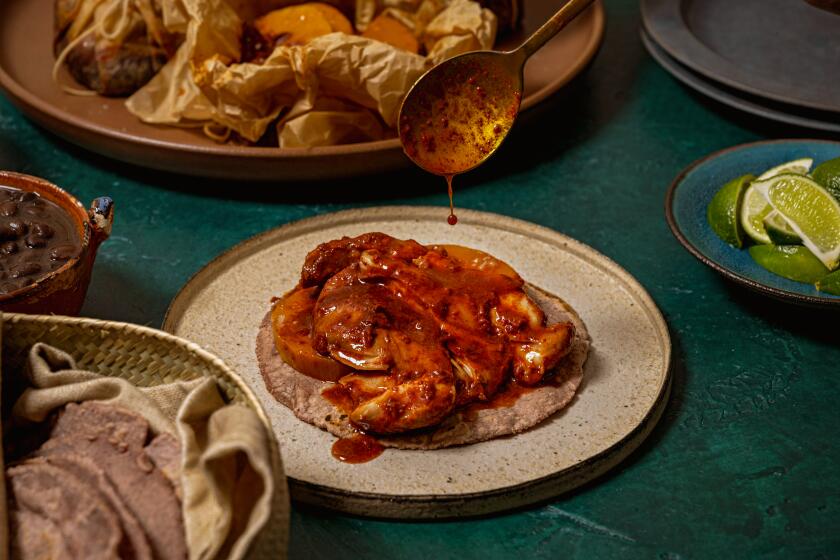Simple, bold flavors spotlight self-discovery in Eric Kim’s ‘Korean American’

Korean ingredients blend with nostalgic American dishes in a new cookbook.
When Angelenos are asked about local cuisine, Korean food is often one of their top three picks. By most estimates, Southern California is home to more Korean Americans than any other area outside the Korean peninsula. So, it’s no surprise that Eric Kim — an Atlanta-born, New York-based writer and columnist for the New York Times — has a lot of fans in L.A.
His writings on growing up as a first-generation Korean American in Atlanta perfectly encapsulate the push and pull between these cultural identities. And his lens for this dialogue is his mother’s home cooking, which he writes about with reverence in his first cookbook, “Korean American: Food That Tastes Like Home.”
Throughout the book, he narrates moments in his life shaped by his mother’s cooking, whether it’s an after-school snack, a celebratory dinner after a successful sale in his father’s work or even after coming back home after running away in his teens. Every meaningful memory in his life is shaped by, and punctuated with, his mother’s food, food that wonderfully strikes a balance between American classics made with Korean ingredients and vice versa: Korean staples transformed with American ingredients his mother used to adapt her dishes in a new world when she and Kim’s father immigrated to the U.S. in the early 1980s.
Pork chops, a convenient and economical constant in many American households back then, are flavored here with lots of salt and pepper, seared until golden and then topped with “vinegared” scallions that approximate pa muchim, a gochugaru-spiced scallion salad often served with grilled pork belly at Korean barbecue restaurants to cut the richness of the meat.
And in his gochujang-glazed zucchini with fried scallions, a sauce made of gochujang, toasted sesame oil, garlic and brown sugar — a combination that pops up frequently in the book and that is so intoxicating on everything — is reduced until sticky and glossy over zucchini chunks that are lightly charred in deeply savory scallion-infused oil.
All of the recipes in Kim’s book perfectly weave together his Korean and American identities in the simplest ways, expertly using a twist on a classic sauce or salad or meat preparation to highlight just how interconnected the two foodways are.
Many Korean ingredients — like gochujang, kimchi and tteok — are so common and available nowadays in the U.S., so it’s wonderful to see just how accessible and “American” his mother’s cooking always was. And now that people outside Kim’s identity have caught up to how brilliant those flavors are, we can all share in his mother’s priceless knowledge of how to use them to make delicious, memorable meals for ourselves.
Get the recipes:
Salt-and-Pepper Pork Chops with Vinegared Scallions
Gochujang-Glazed Zucchini With Fried Scallions
More to Read
Eat your way across L.A.
Get our weekly Tasting Notes newsletter for reviews, news and more.
You may occasionally receive promotional content from the Los Angeles Times.













